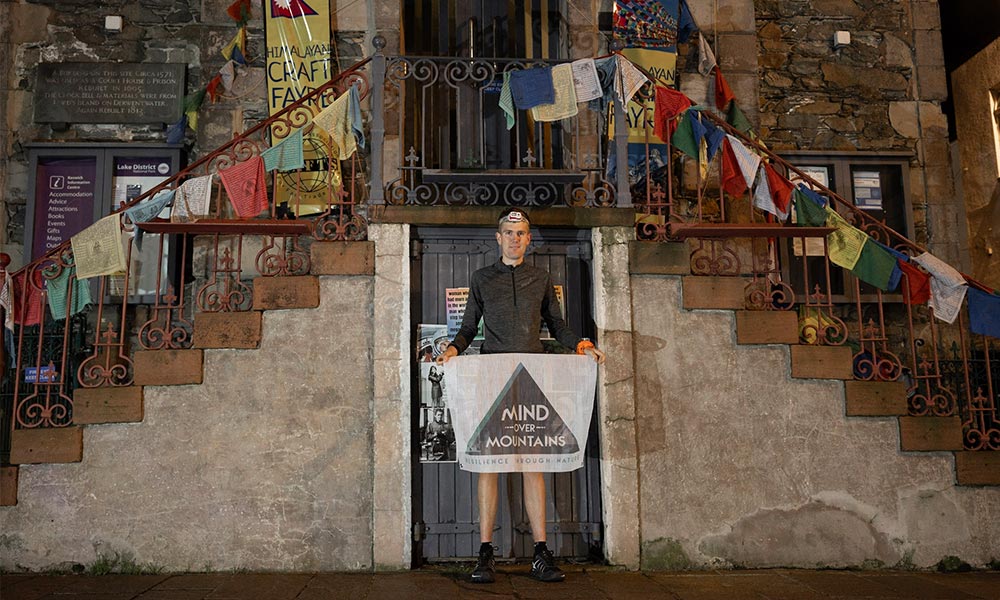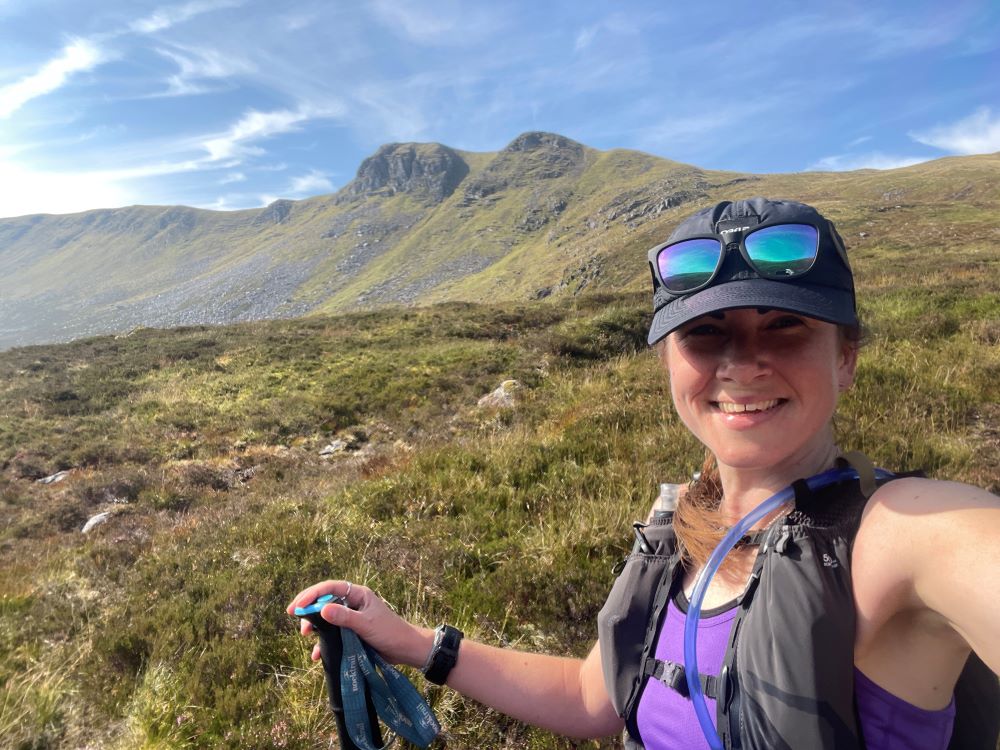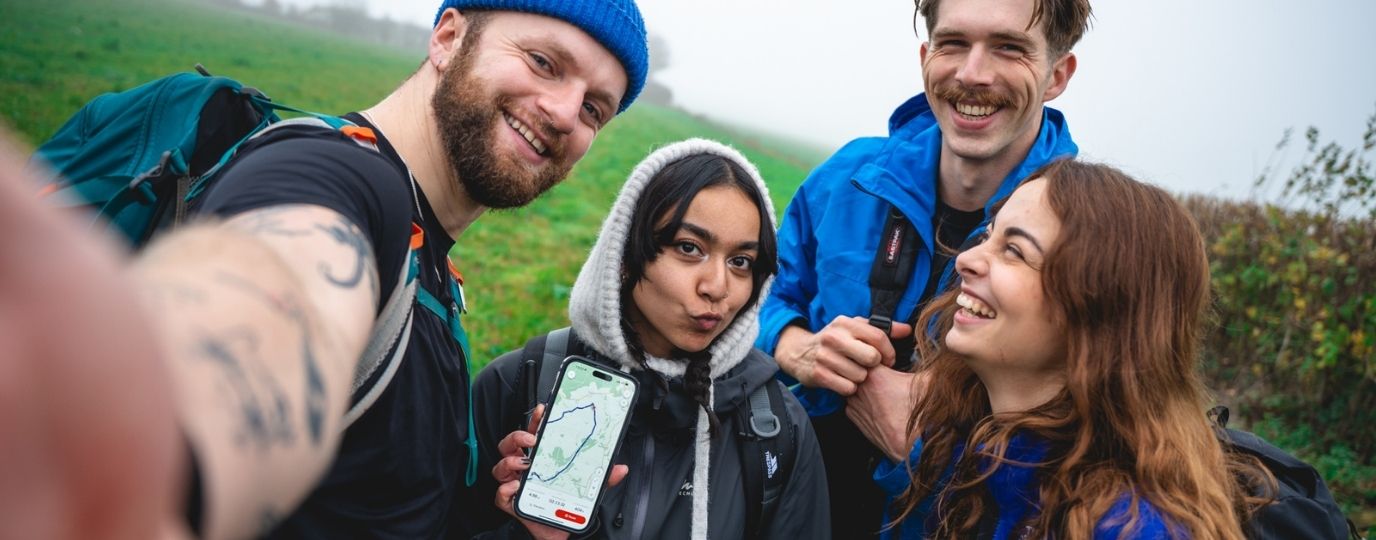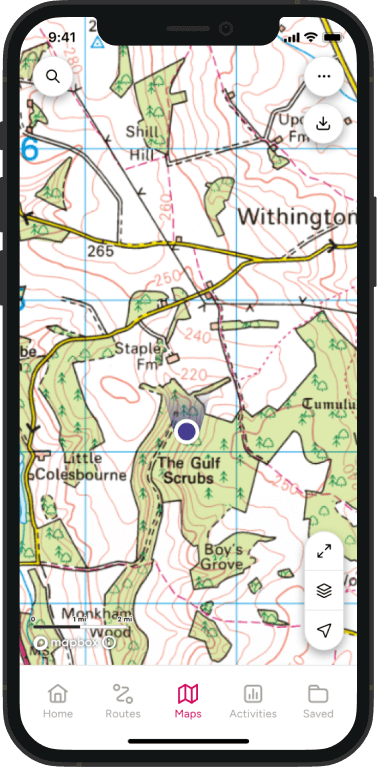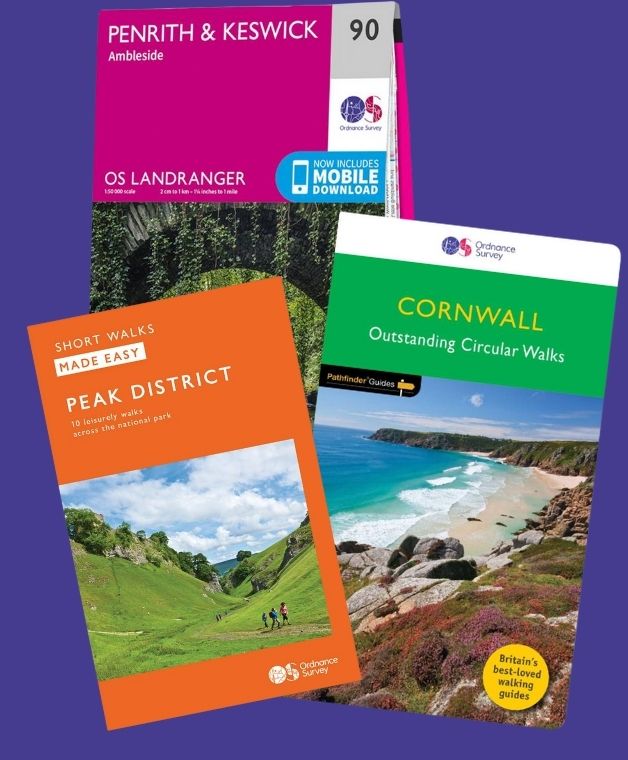The Frog Graham is a swim-run challenge involving over 40 miles of running over Lake District fells and swimming two miles across Bassenthwaite Lake, Crummock Water, Buttermere and Derwentwater. OS Champion Alex Staniforth tells us about the route and his experience of the Frog Graham Round.
What is the Frog Graham Round?
The Frog Graham Round is a swim-run challenge first conceived by Peter Hayes in 2005, inspired by the classic Bob Graham Round fell-running challenge.
The Frog Graham involves running just over 40 miles and ascending over 15,500ft to 18 Lake District fells, whilst swimming 2 miles across Bassenthwaite Lake, Crummock Water, Buttermere and Derwentwater. Unlike its popular big brother, the Frog Graham has no time limit. But, for what it’s worth, the current record is an eye-watering 10 hours and 25 minutes!
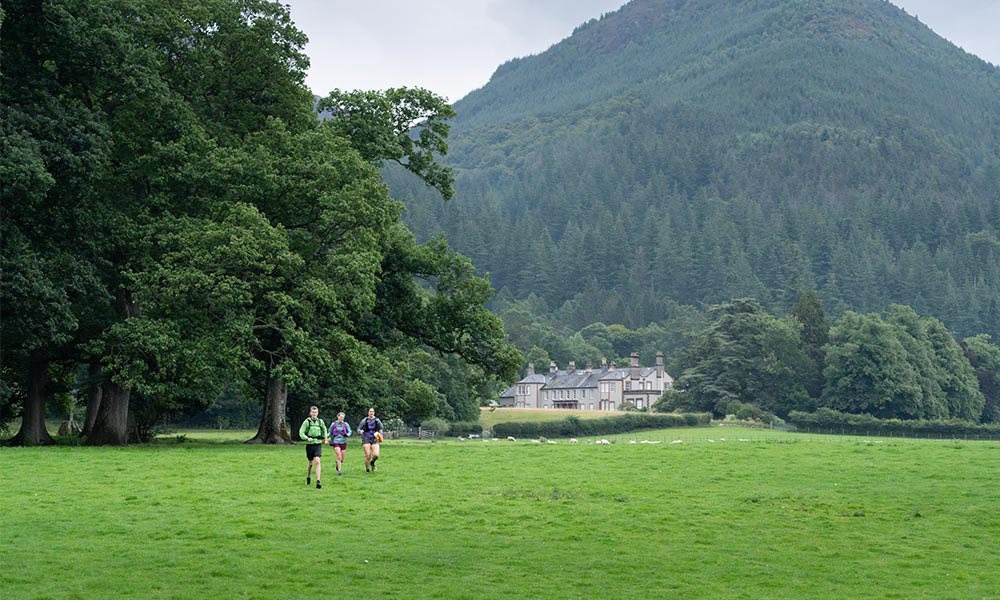
Approaching Bassenthwaite Church, with Dodd behind
Still, it remains a mysterious and elusive feat. I completed the round in August 2023, becoming only number 168 of the Frog Graham Club. Meanwhile the popular Bob Graham 24-hour Club has over 2,700 members as of 2022. Attempts must be officially ratified by the ‘Frog Graham Club’ by pre-registering and submitting both a ratification form and GPS trace after the attempt. Like the Bob Graham it can be supported, but the general spirit of the round encourages people to be self-sufficient and carry everything they need for the duration.
Frog Graham route
Similarly starting and finishing at the Moot Hall, Keswick, it can be taken on either clockwise or anti-clockwise, traditionally in four legs. You can choose your own route but there are a number of mandatory summits, features and water entry/exit points you must visit.
Most people choose to get the slog up Skiddaw over with first, before dropping down Carl Side through Dodd Wood to swim about 1km across Bassenthwaite Lake to Beck Wythop. Leg two follows a chain of fells in the Whinlatter Forest range – from Barf to Grizedale Pike, and the rather pointless ‘summit’ of Ullister Hill which will test your map reading skills. This leg has some brilliant runnable trails and ridges, albeit a hefty 5,000ft of ascent over 13 miles!
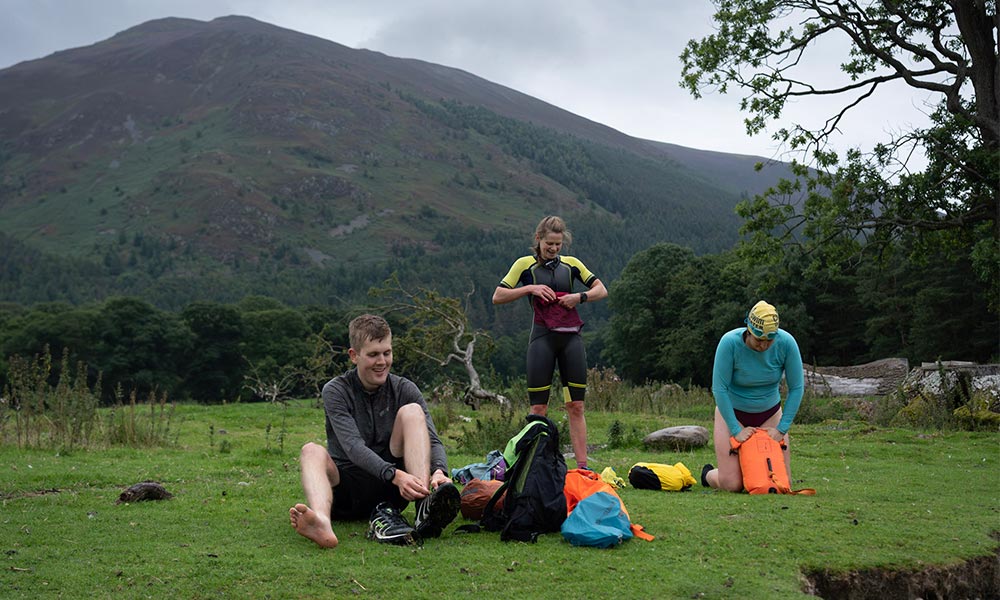
Gearing up to swim Bassenthwaite
After dropping down to Rannerdale Knotts you have the second swim across Crummock Water (approx 0.3 miles). Leg three was the shortest yet most technical, with the direct path up to the summit of Mellbreak. Spoiler alert: there isn’t one. OS Maps would concur. After emerging from the bracken, you pass Scale Force to climb the rocky summits of Red Pike and High Stile before finding a vague and steep line down to Buttermere. After a short swim across to Hassness Wood, leg four involves climbing/crawling up a fence line to the summit of Robinson. After this relentless effort is some superb running to Dale Head, High Spy and the final summit of Catbells, with a gratifying 360 panorama of your day’s efforts and the home straight across Derwentwater to Keswick stretching out below. For an added twist, you must visit and stand on three islands – Otterbield, St Herberts and Rampsholme – on the way across.
The downside of going anti-clockwise is that you leave the longest one-mile swim across Derwentwater for the end of the day when you are most fatigued. Crossing in the dark adds a significant navigational challenge and safety consideration, which is why most contenders opt to start early in the morning and catch sunrise on Bassenthwaite.
Paper map for the Frog Graham
OS Explorer OL4:The Lake District: North-western area
Frog Graham legs in OS Maps
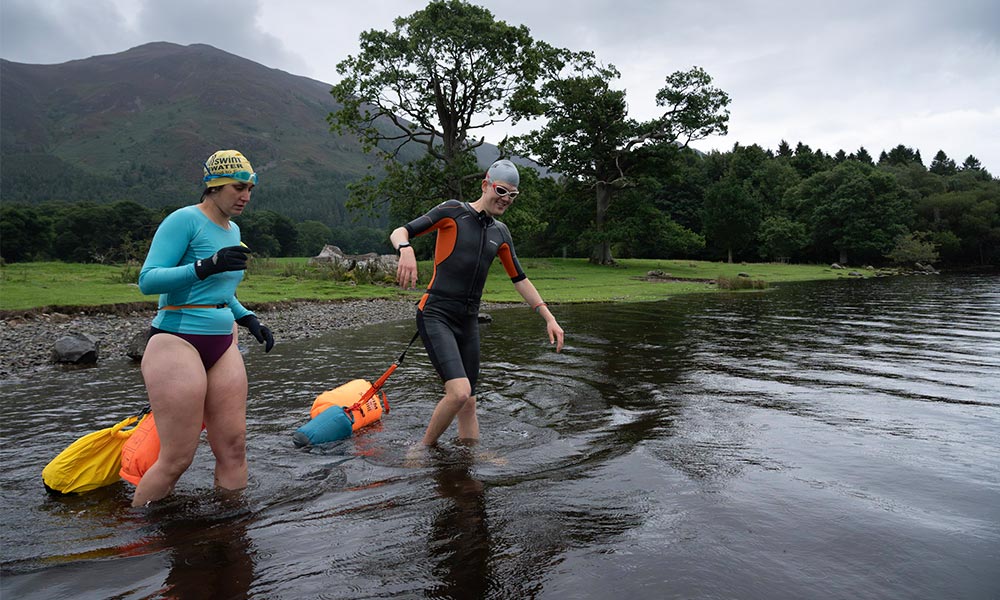
Bassenthwaite – first swim of the day
Why take on the Frog Graham?
Admittedly I’m a total novice in the peculiar world of swim-running, having only started open-water swimming more seriously in summer 2022. After suffering with Long Covid and being unable to run in the fells as usual, swimming had become my release and my new coping mechanism during this uncertain and frightening period, with no guarantee of ever getting back to the running and challenges that became a fundamental part of my identity, career and well-being.
A few friends had completed the round which first brought it to my attention, and it had been stashed somewhere in my subconscious for the future. I had been looking for a comeback challenge so it started to enter my mind more until eventually I committed. Combining both my old and new passions seemed to tick all the boxes.
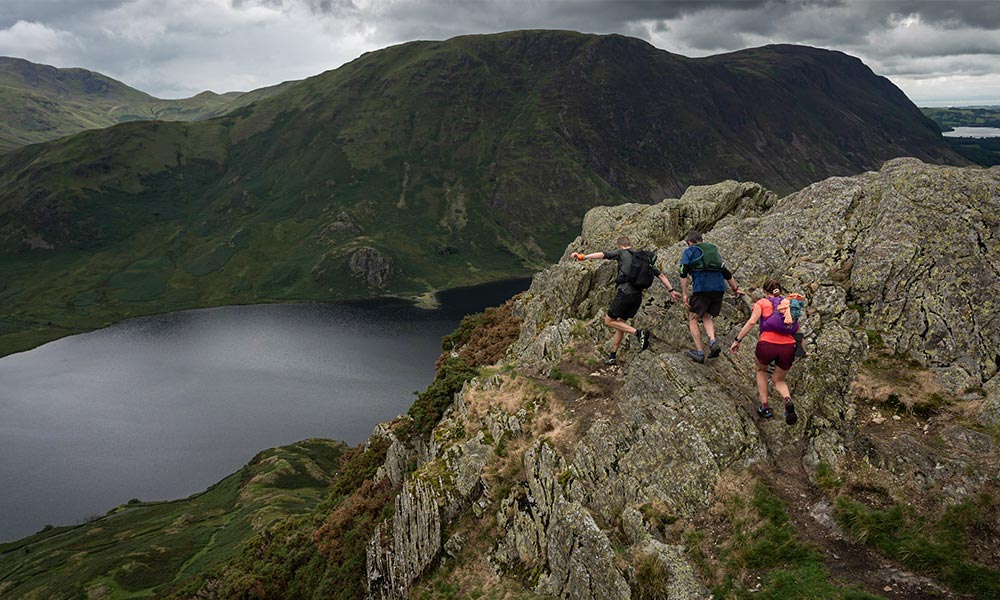
Descending Rannerdale Knotts towards Crummock Water
Planning the round
The Frog Graham is a serious undertaking and shouldn’t be underestimated. Staying warm and safe in the water is a challenge, particularly after cumulative fatigue and exertion. It’s definitely one for experienced runners, and competent (if slow) swimmers.
In the 2-3 months prior I had recce’d every leg of the route at least once, twice on the more navigationally challenging leg three, to increase efficiency and reduce errors on the day. I had conditioned myself by running with the same weight – approx. 5kg – and carrying my swimrun wetsuit in my rucksack. I wasn’t phased by running the distance but after Long Covid the biggest uncertainty was how my body was going to respond to the length of time on the go.
For anyone who doesn’t fancy the full round, the Tadpole Round is a good introduction to swim-running, with a total distance of approx. seven miles and taking in part of the larger Frog Graham route.
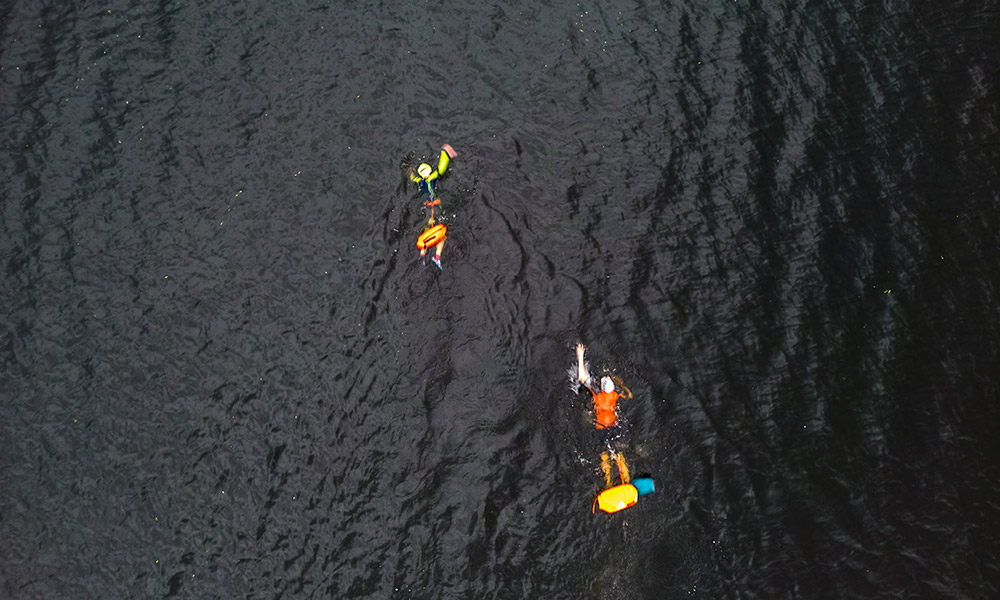
Swimming across Bassenthwaite
Biosecurity is a major concern for the Frog Graham Round to stop the spread of invasive species such as New Zealand Pygmyweed. To ensure the longevity of the round and preventing further damage, all contenders need to either use two wetsuits, or rinse theirs thoroughly before moving between Crummock Water and Buttermere, or after Derwentwater (if going clockwise). I washed my wetsuit and all swim gear in the lower pool of Scale Force waterfall after swimming in Crummock Water. You can also wash your wetsuit using the taps outside the café at Whinlatter Forest, which is less scenic but with fewer Instagrammers asking for a photo.
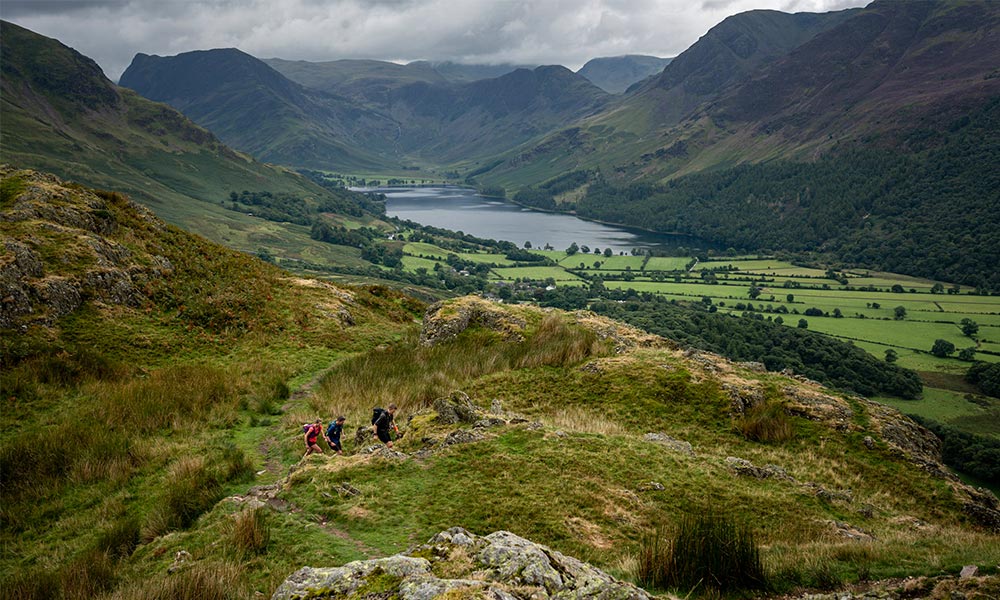
Approaching the summit of Rannerdale Knotts – Buttermere behind
Experiencing the Frog Graham
I began my round at 4am in an anti-clockwise direction. I was lucky to have a great team, with at least one runner and swimmer on each leg, and a paddleboarder on the longer swims. To save weight I had stashed extra water and food at the end of leg one, two and three, and carried everything I needed, apart from my full-length wetsuit which a friend carried as a back-up.
Given the forecast, we were amazed to have a view from the summit of Skiddaw on leg one, and felt relaxed enough to take a quick photo for a passing hill-walker. Bassenthwaite was wonderfully still and silky to swim through. As a fell-runner, the running came very naturally to me, but with my beginner swimming technique (or lack thereof) I was inevitably going to lose time on the transitions.
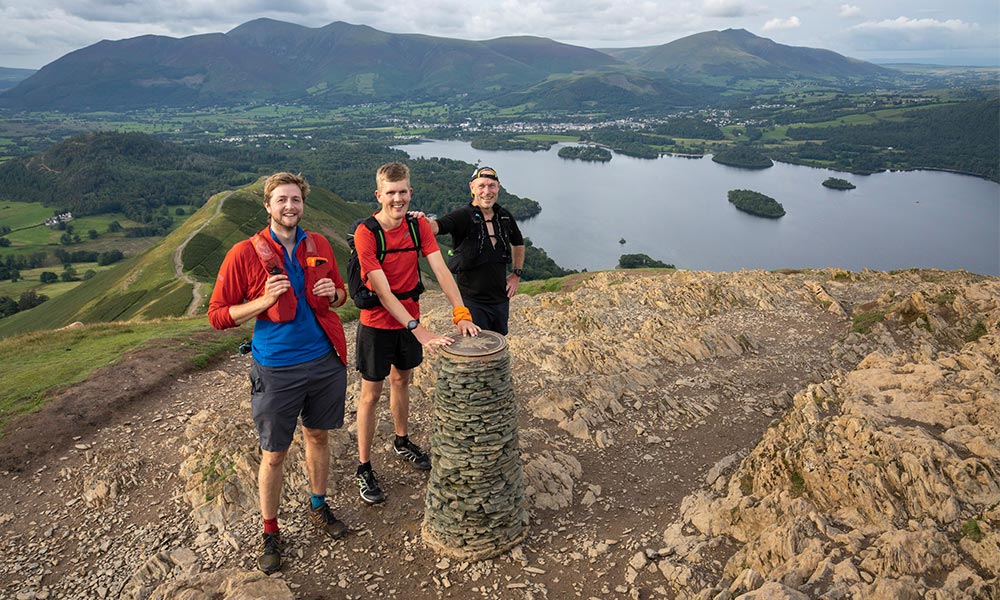
Catbells – the final summit
Leg two was a soggy and windy affair, with a relentless succession of false summits until Grizedale Pike finally appeared in the clag. We were teased by some superb running along Rannerdale Knotts, with a promising if daunting window-shop view of what lies ahead on leg three.
In a matter of minutes it felt like we had descended into a different planet, with biblical rain on leg three. I shivered into my wetsuit at the side of Crummock Water as the water stung my face. Vic and Jules guided me across, handing me over to Paul and Matt at Low Ling Crag, donned head to toe in dripping waterproofs. Within minutes the sun had shined on the righteousness. and the wetsuit became clammy instead.
On leg four things began to get interesting as I lost some water and struggled with stomach issues, shuffling grumpily towards Dale Head and High Spy. Conveniently, my support runner Chris revived me with his spare water. The hillside was ignited by pink heather under the warm evening sun, and I was energised by a quiet confidence that I was going to make it across Derwentwater in daylight. Maybe even in time for fish and chips.
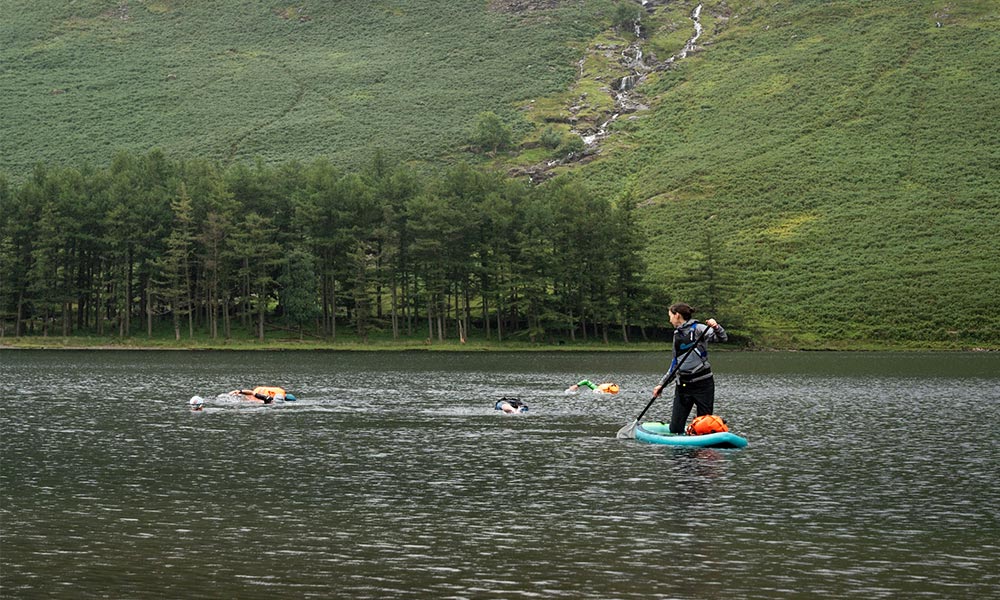
Crossing Buttermere
With an evening chill I switched to a full-length wetsuit for the longest swim over Derwentwater. Vic and Lea provided a tactical seagull decoy as I clambered on to Otterbield Island. After an intense glory mile I hit the Moot Hall steps in 16 hours and 57 minutes, with less than three minutes to spare on my schedule. That was a moment I’ll never forget, and something we can’t ever take for granted.
Lessons learnt
- Practice the start and finish. Like a motivational talk, the start and finish are the most important bits to get right and build your confidence early on. I regrettably took a wrong turn within two minutes of leaving Keswick in the dark. These small errors can really add up – particularly when you don’t want to admit them and go back on yourself.
- Recce each section at least twice. A couple of schoolboy errors and wrong turns added at least 30 minutes onto my overall time. This happened on the sections I had practiced only once. It takes repeated exposure to build a memory imprint, particularly if your weather conditions on the day are different.
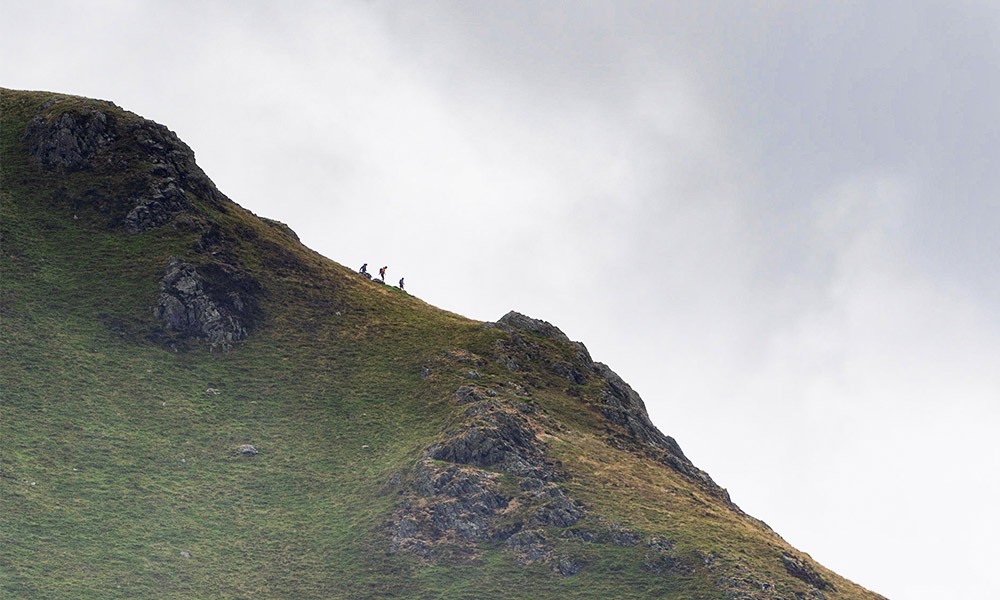
Descending Whiteless Pike
- Always have a back-up. Some local rodents fancied a taste of my energy gels and food stash hidden behind a tree in Buttermere. Once you fall behind with nutrition it can be very hard to catch up again. I had planned to bring more food than I needed for each leg.
- The time (to do it) is now. Considering the weather forecast I had contemplated pulling out a few days before. On the day itself there were moments of panic, overwhelm and anxiety about what lay ahead. But so much can change in a day, an hour, or a minute. Draw strength from your team, focus on the current moment, and find those positive shifts from the environment around you.
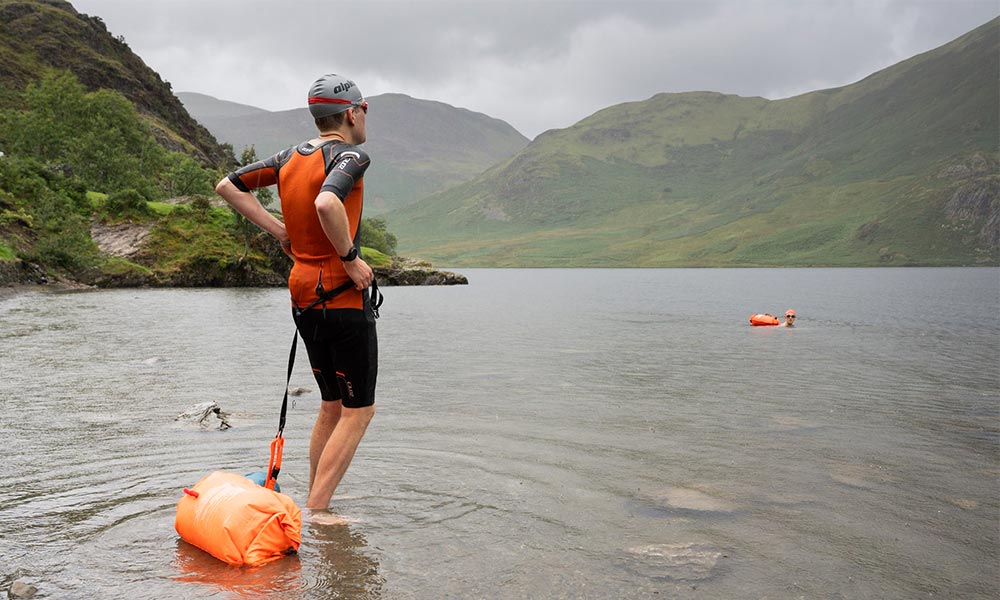
Contemplating the temperature of Crummock Water
Future plans
Naturally after completing one challenge we raise our own bar, confidence and reference point. I recently swam the length of Wastwater in one go (three miles) which I could never have contemplated last year! I’d love to complete the Frog Graham again earlier in the summer which would allow me to carry less kit and hopefully get round much quicker. Sometimes you have to throw yourself in the deep end and learn to swim!
All photos in this article taken by Giles Thurston Photography.

